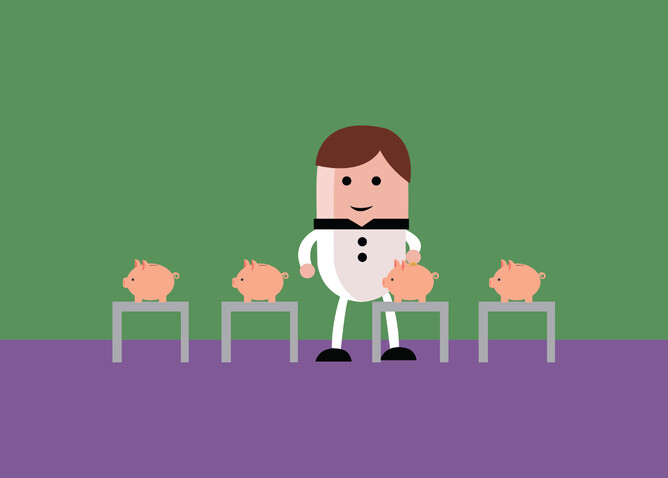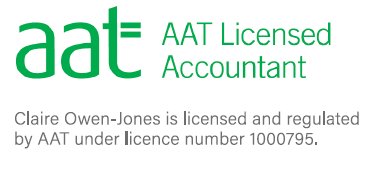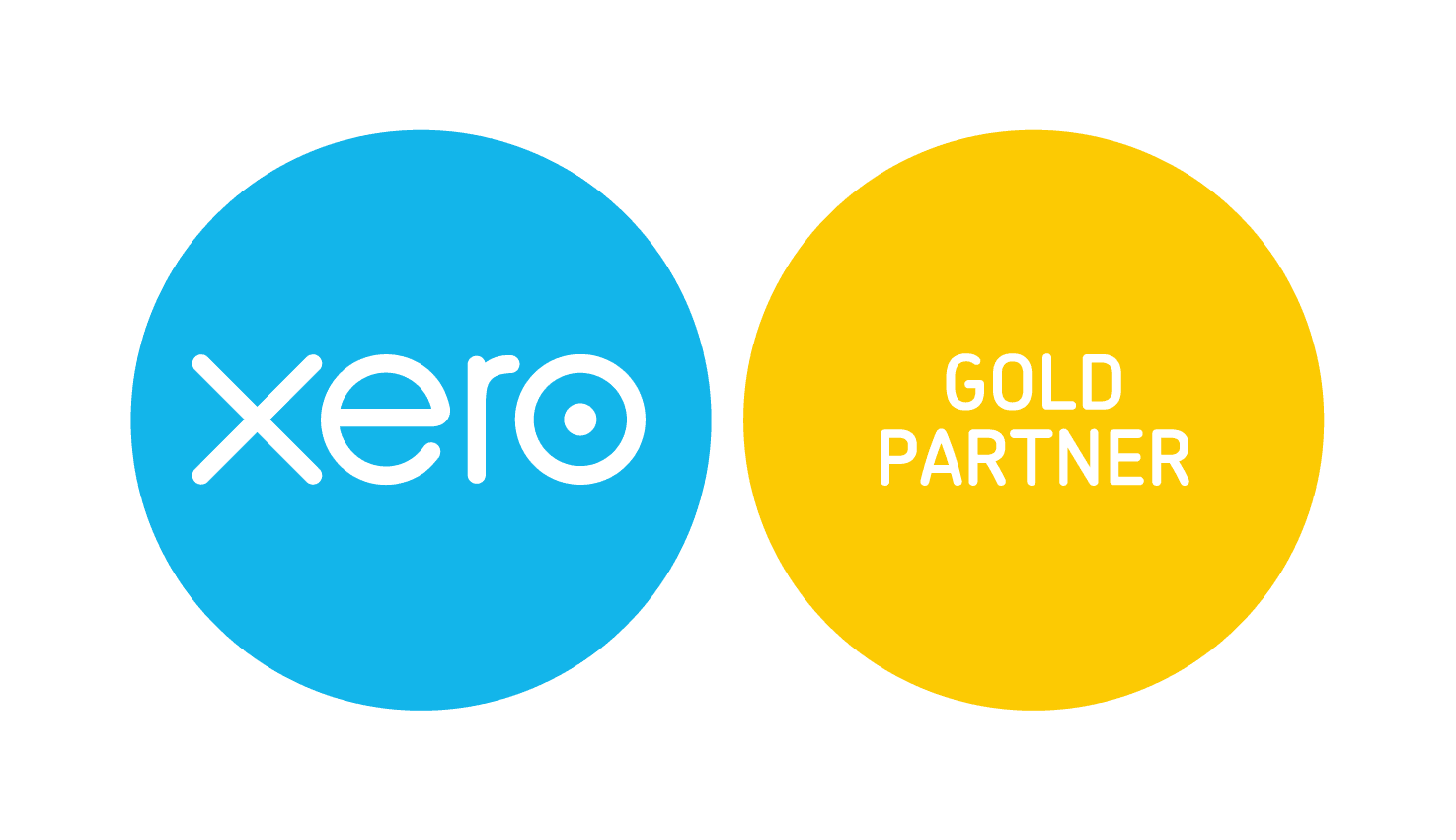As soon as you become a business owner, you immediately become very popular.
This is because everyone makes two assumptions about you.
The first is that you have lots of money. The second is that you are prepared to spend that money on making your business a success.
Clearly you do need to spend some money on your business to achieve. I'm sure there are stories of entrepreneurs' who have made their millions by spending absolutely nothing, but it's probably safe to assume that this is not going to happen to either you or me. Us mere mortals generally need to buy something.
So how much should you spend?
It depends.
There are a lot of factors to consider when deciding how much to spend on your business. If you are happy to start small, having no customers to begin with and working from home then you are going to want to keep your costs to a minimum.
If you have a contract or a portfolio of clients already lined up, and you are going to hit the ground running with an office and a small team, then clearly costs will be higher.
What you need to remember, whatever route you take, is that there is no clear pathway to success. There is no silver bullet that you can buy which will mean you can spend whatever you want. Sorry.
How will I know what to spend my money on?
As I say it, I know it's almost an impossible task, but always focus on the return on investment.
So, if you spend x amount on a particular purchase or service, what value will it bring to your business?
This could be something really simple, like buying your first desk. Ask yourself, will a £500 desk bring more value to your business than a second hand £50 one? Put vanity aside now because clearly a £500 desk will be considerably more lovely – but will it increase your sales?
Will Infusionsoft bring in more customers than MailChimp? Should you choose Receipt Bank or 1-Tap to record your expenses? Do you really need to employ an admin assistant and incur all the associated costs of having an employee, when you can get a Virtual Assistant (VA) to help you out when you need the additional support?
I know I'm running the risk of sounding very accountanty now but I'm certainly not saying to cut costs and spend nothing. But it's about spending the right amount of money, on the right things and at the right time.
This will depend on your ideal customers as the higher end of the market will probably expect you to be more polished. It may also depend on how competitive your industry is and the entry level.
How can I make sure I don't spend too much?
Some of us will naturally spend every penny our businesses make and others won't budge even when their business is crying out for investment.
If you fall into the first category then I recommend two things:
Make a budget and stick to it.
If you can't do the stick to it bit then it's probably not worth even spending time of the budgeting part.
We've probably all done a budget at some point, but it's basically where you map out at the beginning of the year, how much you plan on spending in each area of your business.
Having this in place will flag up areas where you are spending more than planned. However, it will also highlight areas where you are spending less. It will never physically stop you from spending but it acts as an alarm or a warning that there could be trouble ahead.
Hide your money so you cannot spend it
Clearly, I don't mean under the bed or anything too wacky now.
For my clients' who have a tendency to invest a little too much into their businesses, I recommend splitting their money over several bank accounts.
Roughly following the Profit First methodology, we calculate a couple of percentages. Then, when a customer pays you, you move a certain percentage of the sale to your tax account, another percentage to your owners pay account and so on.
This works because it means that the money remaining in your bank account is what's left to spend on your business. It acts as more of a physical budget because unless you want to go overdrawn, you can only spend what's in your account, so restricting this in turn restricts your spending.
But it's my business, so I can spend my money on whatever I want surely?
Of course you can.
Just remember that you can only run out of money once, and keep in mind that every business has its ups and downs.
You don't want to spend your reserves and up your monthly fixed costs only to find that 3 months down the line sales dip and you no longer have the funds to pay the tax bill that you forgot about.
There will always be unexpected costs and try to save for your tax bill in the year you incur it. I've seen so many businesses have a fantastic year, go mad on the old spending, the next year isn't quite so good and then a massive tax bill is due.
If you're going to go out of business, make sure it's never over tax. That's an awful way to go.
Oh, and if you're interested in hiding your money, you can buy the Profit First book here:
https://www.amazon.co.uk/d/Books/Profit-First-Transform-Cash-Eating-Money-Making/073521414X/ref=sr_1_1?ie=UTF8&qid=1493297429&sr=8-1&keywords=profit+first
Or you can contact me and we'll work out some percentages together.
This is because everyone makes two assumptions about you.
The first is that you have lots of money. The second is that you are prepared to spend that money on making your business a success.
Clearly you do need to spend some money on your business to achieve. I'm sure there are stories of entrepreneurs' who have made their millions by spending absolutely nothing, but it's probably safe to assume that this is not going to happen to either you or me. Us mere mortals generally need to buy something.
So how much should you spend?
It depends.
There are a lot of factors to consider when deciding how much to spend on your business. If you are happy to start small, having no customers to begin with and working from home then you are going to want to keep your costs to a minimum.
If you have a contract or a portfolio of clients already lined up, and you are going to hit the ground running with an office and a small team, then clearly costs will be higher.
What you need to remember, whatever route you take, is that there is no clear pathway to success. There is no silver bullet that you can buy which will mean you can spend whatever you want. Sorry.
How will I know what to spend my money on?
As I say it, I know it's almost an impossible task, but always focus on the return on investment.
So, if you spend x amount on a particular purchase or service, what value will it bring to your business?
This could be something really simple, like buying your first desk. Ask yourself, will a £500 desk bring more value to your business than a second hand £50 one? Put vanity aside now because clearly a £500 desk will be considerably more lovely – but will it increase your sales?
Will Infusionsoft bring in more customers than MailChimp? Should you choose Receipt Bank or 1-Tap to record your expenses? Do you really need to employ an admin assistant and incur all the associated costs of having an employee, when you can get a Virtual Assistant (VA) to help you out when you need the additional support?
I know I'm running the risk of sounding very accountanty now but I'm certainly not saying to cut costs and spend nothing. But it's about spending the right amount of money, on the right things and at the right time.
This will depend on your ideal customers as the higher end of the market will probably expect you to be more polished. It may also depend on how competitive your industry is and the entry level.
How can I make sure I don't spend too much?
Some of us will naturally spend every penny our businesses make and others won't budge even when their business is crying out for investment.
If you fall into the first category then I recommend two things:
Make a budget and stick to it.
If you can't do the stick to it bit then it's probably not worth even spending time of the budgeting part.
We've probably all done a budget at some point, but it's basically where you map out at the beginning of the year, how much you plan on spending in each area of your business.
Having this in place will flag up areas where you are spending more than planned. However, it will also highlight areas where you are spending less. It will never physically stop you from spending but it acts as an alarm or a warning that there could be trouble ahead.
Hide your money so you cannot spend it
Clearly, I don't mean under the bed or anything too wacky now.
For my clients' who have a tendency to invest a little too much into their businesses, I recommend splitting their money over several bank accounts.
Roughly following the Profit First methodology, we calculate a couple of percentages. Then, when a customer pays you, you move a certain percentage of the sale to your tax account, another percentage to your owners pay account and so on.
This works because it means that the money remaining in your bank account is what's left to spend on your business. It acts as more of a physical budget because unless you want to go overdrawn, you can only spend what's in your account, so restricting this in turn restricts your spending.
But it's my business, so I can spend my money on whatever I want surely?
Of course you can.
Just remember that you can only run out of money once, and keep in mind that every business has its ups and downs.
You don't want to spend your reserves and up your monthly fixed costs only to find that 3 months down the line sales dip and you no longer have the funds to pay the tax bill that you forgot about.
There will always be unexpected costs and try to save for your tax bill in the year you incur it. I've seen so many businesses have a fantastic year, go mad on the old spending, the next year isn't quite so good and then a massive tax bill is due.
If you're going to go out of business, make sure it's never over tax. That's an awful way to go.
Oh, and if you're interested in hiding your money, you can buy the Profit First book here:
https://www.amazon.co.uk/d/Books/Profit-First-Transform-Cash-Eating-Money-Making/073521414X/ref=sr_1_1?ie=UTF8&qid=1493297429&sr=8-1&keywords=profit+first
Or you can contact me and we'll work out some percentages together.







